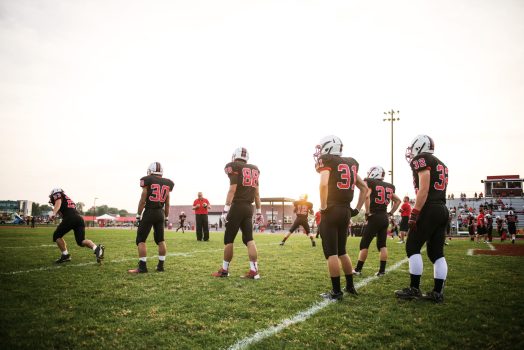
A federal appeals court handed down an important ruling last week on the role of religion in public education. Happily, the court ruled in favor of separation of church and state and against coercive religion.
The case, Cambridge Christian School v. Florida High School Athletic Association, arose in 2015 after two private religious high schools in Florida sought to use a public-address system to lead prayers during a state football championship game.
The Florida High School Athletic Association (FHSAA), an organization that oversees the games, which includes teams from public and private schools, said no to the request. The FHSAA explained that it does not grant any school access to the PA system during pregame ceremonies at championship games and that it would not make an exception in this case and grant special access for a religious message.
This made perfect sense. Allowing the Christian school to lead prayers would not only have exposed unwilling participants to religious worship, it might also have run the risk of turning the PA system into a kind of public forum other schools could demand to use for broadcasting messages. The FHSAA wisely chose to keep control of the broadcasting platform.
One of the schools, Cambridge Christian School, sued, claiming the FHSAA had violated its right to free speech and freedom of religion. The case knocked around in the federal courts for several years. A federal court initially ruled against Cambridge Christian, and the school appealed to the 11th U.S. Circuit Court of Appeals.
Americans United filed a friend-of-the-court brief in the case in December 2017 supporting the FHSAA. In November 2019, the appeals court sent the case back to the lower court for additional fact-finding. On March 31, 2022, the district court, having reexamined the facts, again rejected the school’s arguments and ruled that the school did not have a constitutional right to access the public-address system to lead communal prayer.
But Cambridge Christian would not give up and again appealed to the 11th Circuit. In October of 2022, Americans United filed another friend-of-the-court brief in support of the FHSAA. The brief argued that the Association’s actions did not violate the school’s right to freely exercise religion, because the Association did not discriminate against religious messages. The brief also noted that religious freedom doesn’t give religious institutions the power to demand special privileges and benefits from the government that aren’t available to others.
The brief further explained that if the FHSAA had granted the school special access to the PA system for prayer, the Association would have violated the separation of church and state. The government, the brief asserted, must not coerce members of the public – especially vulnerable youths – to participate in prayer; nor may the government favor one religion over nonreligion. AU’s brief was joined by a number of religious and civil rights organizations.
The appeals court on Sept. 3 rejected Cambridge Christian’s contentions once again. Let’s hope this ends the case. Cambridge Christian is arguing that it has a constitutional right to take over a government-provided microphone to compel everyone attending a secular event to take part in, or at least listen to, prayers.
This was an audacious move, and the appeals court was correct to reject it.